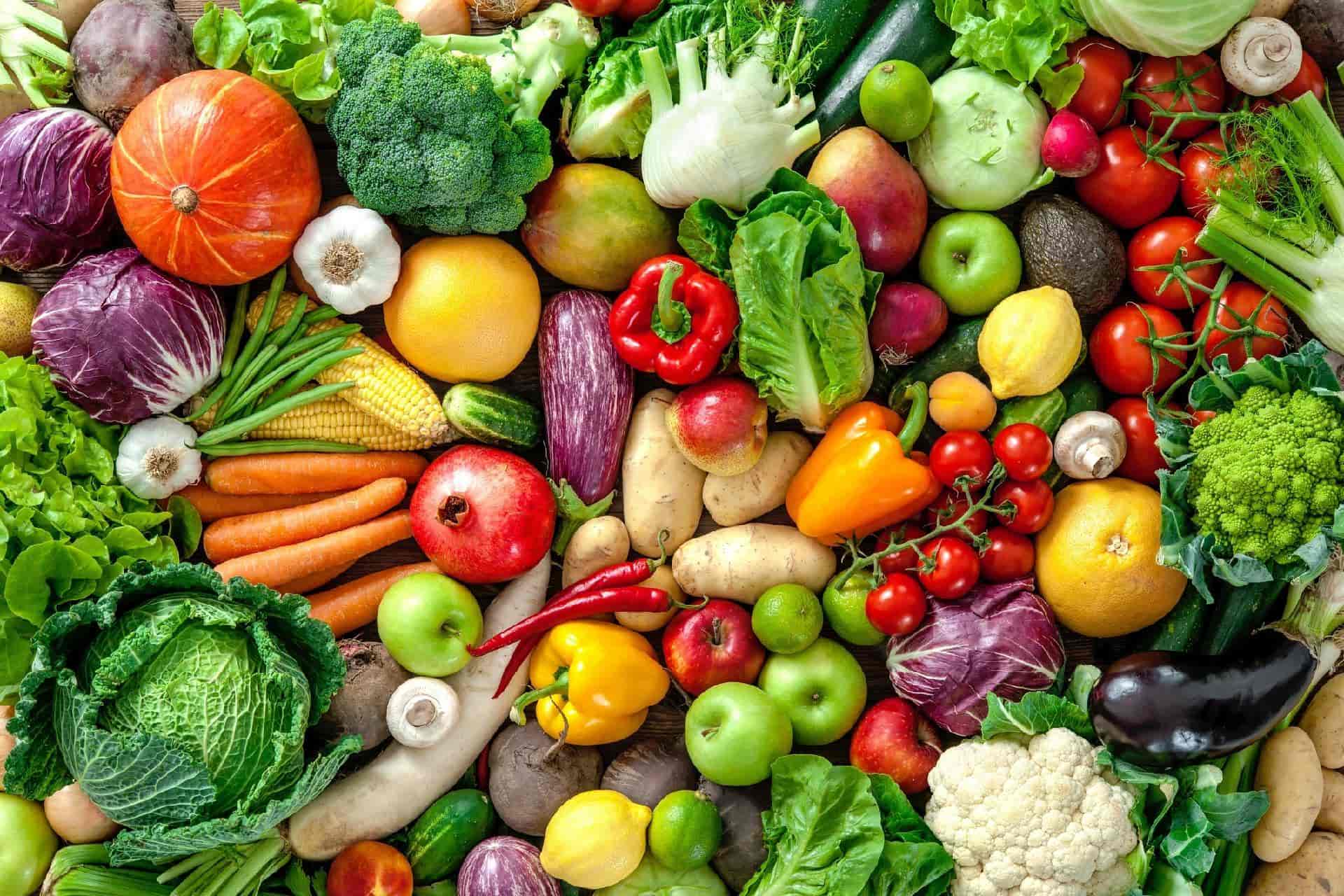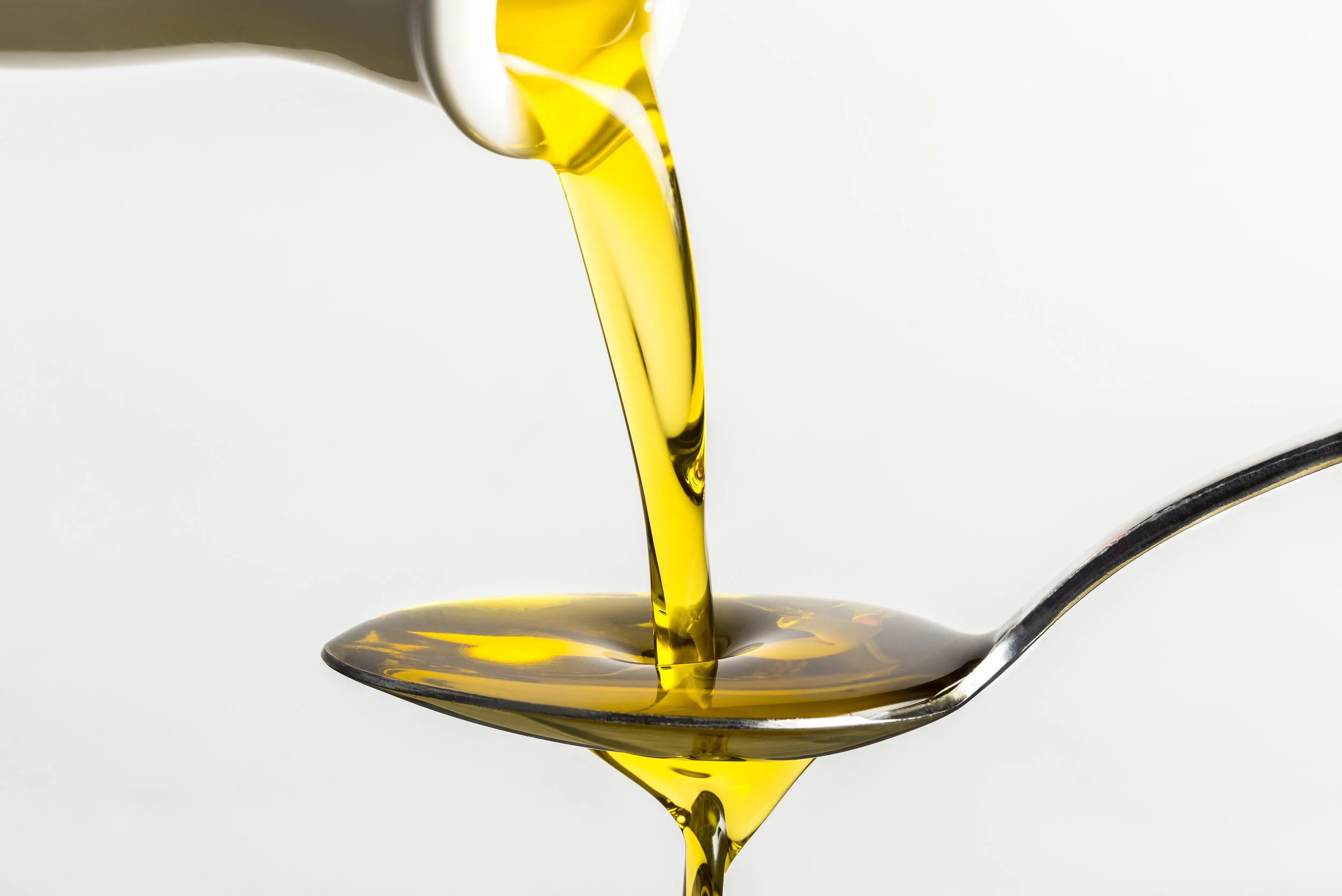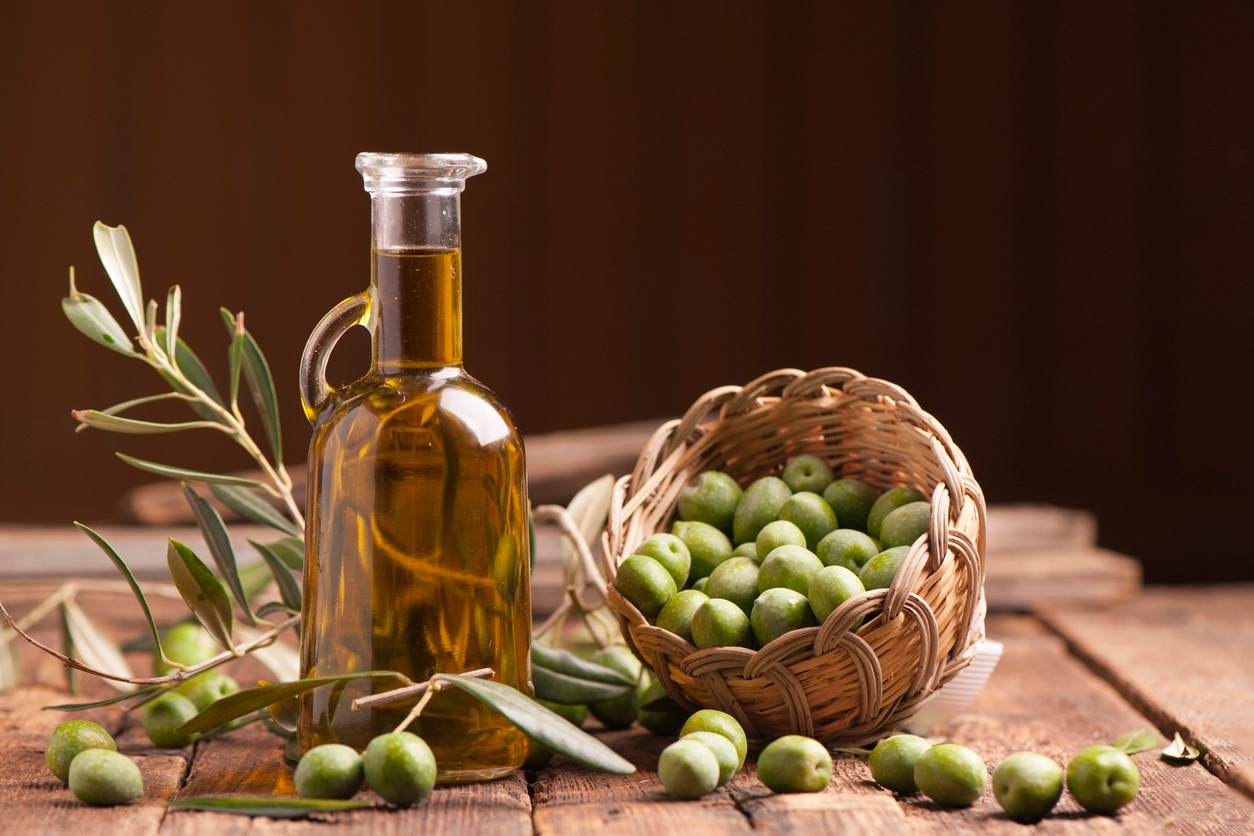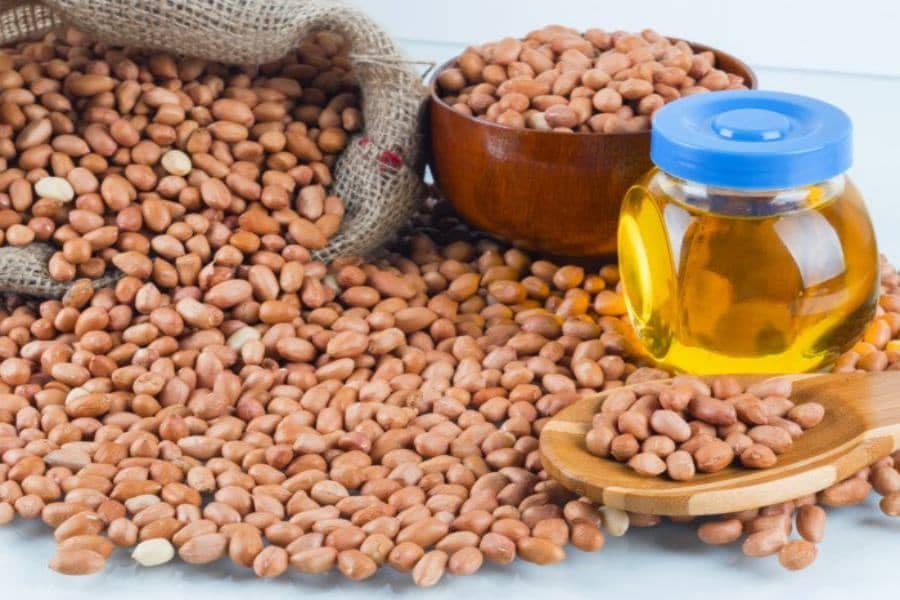Vegetable Oil Health Benefits and Side Effects
Written by: Christopher Karam | ✔️ Medically Reviewed by: Dr. Riad M., M.D - G.P and Micheal B., M.D | Last Updated: 2020 July 10
Table of Contents
- Break Down
- Health Benefits
- Side Effects
- Nutrition Facts
- Recommendation
- Frequently Asked Questions (FAQ)
- Related Articles
- Sources
- Buy Organic Vegetable Oil Now
Break Down and Background
Vegetable oil is a widely used household frying oil that has many variations and different ingredients. It's a tricky product to analyze since it has so many variables.
It contains both omega-6 and omega-3 fatty acids. They're essential omega fatty acids, that can only come from your diet since your body can't produce them.
The typical North American diet has a poor ratio of omega-3 to omega-6 fats that can cause a series of chronic internal inflammation, cancer, diabetes, and cardiovascular disease.
We'll be covering different plant and seed oil variations from the most basic ingredients to the more complex ingredients that are used in making vegetable oils, lard, or shortening. Which can be included in part or whole:
Avocado oil
Flaxseed oil
Cottonseed oil
Linseed oil
Sesame oil
Safflower oil
Walnut oil
Grapeseed oil
and other nut oils
Unlike the popular olive oil and coconut oil extraction method of cold pressing the ingredients to create the final product. Plant-based oils can be done in many harmful, toxic, and unnatural methods.
Olive oil, sunflower oil, or canola oils are the primary ingredients and the base of almost all plant oils. These oils were requested to be sold in the category of cooking products and were then granted approval to be used in U.S food markets in 1985.
The vast use of vegetable oil in global food markets have spiked the rates of heart disease and cardiovascular complications throughout the United States, South America, and Asia.
Vegetable oil is also an ingredient used in desserts, salad dressing kits, vegetarian and vegan-friendly foods, ready-to-go meals, and fried food recipes.
Vegetable oils have a global consumption rate of almost 200 million metric tons per year, sitting at around a 26$ billion to 27$ billion dollar market.
It's best not to get mixed up between the actual product and the category of plant-based oils such as soybean oil, corn oil, as well as other edible and essential oils.
Most mainstream health and medical professionals, dietitians, and the American Heart Association (AHA) consider vegetable oil to be healthy, but in reality, it can cause heart disease and a variety of other health problems.
Here is how vegetable oil’s made:
The canola oil base is made with a GMO version of rapeseed that's also heavily treated with herbicides and pesticides.
The rapeseed plant is then deseeded, crushed to soften the outer seed coat layer.
The flakes are then transitioned to a steam-heated drum or stack cooker to rupture the membranes. This reduces its viscosity, helping the droplets to clump up and bind together denaturing their hydrolytic enzymes (breaking down its fat molecules).
The oil is quickly heated from 80 to 90°C (176 to 194°F) to break down the myrosinase enzyme in canola, myrosinase hydrolyzes the glucosinolates (the defence mechanism of cruciferous plants when damaged) that destabilizes the oil.
Breaking down this enzyme keeps the product stable, and some manufacturers have reported reaching heats of up to 120°C (250°F) for 15 to 20 minutes.
The mix is then pressed together to form a mix of thick cell membranes and residues called a press cake. A petroleum solvent (hexane) is then used to penetrate the cake and extract the trapped oils. At this stage, the mix is 99% petroleum and less than 1% canola oil.
It's then heated once again from 95 to 115°C for 1 to 1.5 hours to remove the solvent and moisture.
Finally, the fats are then refined with a color enhancing chemical, it's then deodorized to improve the color and mask the smell from the chemicals and rancid oils.
Many scientific studies use canola oil and vegetable oil with non-herbal tea compounds and antioxidants to verify as well as examine different behaviors. These have been conducted with the following non-herbal teas:
Black tea (least antioxidants)
White tea (most antioxidants)
That's just the base, not exactly a healthy choice but it's still regarded by the health community as a heart-healthy product. A step above that is margarine, which hydrogenates the canola as well as other legume and nut oils.
Then you'll have a solid piece of margarine that's high in omega-6, saturated and trans fats. Along with the continued myths behind saturated fats and cholesterol levels, it's promoted as being heart-healthy because of the good source of omega-3 and omega-6 fatty acids, saturated fats, and polyunsaturated fats.
The final product is given a deceiving name when in actuality, whole vegetables are not used nor contain any oil what so ever. This is a marketing trick that gives a harmless name to a harmful product.
Depending on how many omega-6 fatty acids there are in a vegetable-based oil, the side effects may vary. This also depends on the genetically modified (GMO) plants they’re extracted from, and how they’re processed.
These are not our preferred vegetable oils of choice when it comes to eating and feeling your best. Especially since this is a mix of the most oxidized oils and harmful fats mixed into one product, vegetable oil.
An extra virgin olive oil base can be the exception, but because of the processing needed to produce one uniform oil, they destroy most of the beneficial properties of the olive-based vegetable oil.
This has a huge impact on its quality and safety, classifying vegetable oil as a waste product. Produced from the waste and residue of other manufactured products.
Originally, that other product is hand soap, designed in the late 1800s to 1900s. The waste that comes from its production was an early form of cottonseed oil
The byproducts and waste ingredients were used back then and are even used with no major innovations since its conception.
These natural oils go through toxic and refining processes that remove all of the nutrients and healthy plant-based compounds originally found in the oil.
Vegetable Oil Health Benefits
The health benefits of vegetable oil are minimal, while its list of side effects is extensive. There are a few redeeming qualities, one of which is its high smoke point making vegetable oil good for pan-frying as well as deep-frying.
This is the reason why brands advertise it as a frying oil since it's more efficient at deep frying foods compared to other vegetable oils on the market.
Vegetable oil also contains a small amount of saturated fat, monounsaturated fats, high levels of omega-6 fats, and some levels of omega-3 fatty acids most of which have gone bad; all while having 0 grams of trans fats.
1. Can Increase Your Metabolism
A study conducted in Sao Paulo State University states that the olives that are used in typical vegetable oils have been shown to benefit fat loss by increasing your basal metabolic rate (BMR).
This is because these good fats have important alpha-linolenic acids, phenolic compounds, anti-blood clotting, and anti-inflammatory, as well as loads of antioxidants. These healthy fats increase your overall basal metabolic rate.
2. May Improve Your Heart Health
Vegetable oil is abundant in linoleic acid, alpha-linolenic acid, lauric acid, and unsaturated fats, all of which contribute to improved cardiovascular health and functioning as well as the lowering of bad (LDL) cholesterol.
According to the study conducted at the State University of New York, they found that you can reduce bad (LDL) cholesterol, heart complications, and raised healthier blood sugar levels in people who used legume or nut-based oils in their diets regularly.
Vegetable Oil Side Effects and Detriments
1. Triggers Many Chronic Diseases
Chronic inflammation is a major factor in the typical North American diet, especially because of its continued growth in popularity. Vegetable oils are the most imported oils worldwide, at just over 150 million metric tons per year.
Many studies show that a diet with too much vegetable oil and an elevated level of omega-6 fatty acids increased your risk of heart disease, obesity, arthritis, inflammatory bowel, and cardiovascular disease.
Many issues stem from the polyunsaturated fatty acids found in most plant-based oils, which are also similar to hydrogenated vegetable shortening.
Vegetable oil is an unhealthy substitute for butter, and if consumed too much and too often it can cause very harmful problems down the line due to all of the omega-6 fats.
A list of common diseases caused by ingesting vegetable oil include:
Age-related macular degeneration
Higher rates of miscarriages
Increased DNA oxidation
Retinal pigment epithelial degeneration
Premature rupture of cell membranes
Now we get into the core of the negative effects when consuming vegetable oil. First is the quality and source.
2. Its Healthy Fats Are Toxic and Rancid
The quality of the mixed oils which make up the vegetable oil is full of toxins. From the multiple bleaching processes to the extreme heats exerted on the product, the finished product becomes mostly oxidized and rancid from all of the processing.
When producing vegetable oil, it gets exposed to high pressures, chemical agents, light, and air. Which is what causes vegetable oils to go bad and develop free radicals.
These vegetable oils have a long history of promoting heart disease and cancerous results in clinical testings.
The chemicals used to produce vegetable oil have been shown to produce potential cancer-causing compounds in the body, and have also been linked to liver and kidney damage, heart disease, immune problems, infertility, and high levels of cholesterol.
The canola oil treatment process, which is also the base of all vegetable cooking oil and sprays as well, have had their beneficial fat compositions destroyed by all of the harsh chemicals, high levels of heat, and oxidation.
The biggest cause for concern with oxidated vegetable oil is that it rids your body of any antioxidants, these are used to neutralize oxidation that you get from eating and natural oxidative stress happening to your body over time.
Our body produces oxidative damage (metabolites) during our regular metabolic processes. Some metabolic processes include:
Repair and function of the brain and internal organs
Repair, maintenance, growth, and functioning of skeletal muscles
Joint and bone mass preservation
On top of that, in a reserved animal study, rats were fed a diet high in polyunsaturated and omega-6 fatty acids coming from vegetable oil.
Additionally, these harmful fats inhibited their ability to learn especially under conditions of stress, created toxic waste in the liver, compromised the integrity of the immune system, and depressed the mental and physical growth of infants.
The increased levels of erucic acid and uric acid in the bloodstream which causes abnormal fatty acid levels in the fatty liver tissues, this effect has been linked to mental decline and accelerate ageing.
Excess consumption of PUFAs is associated with an increased rate of cancer, liver complications, heart-related diseases, and weight gain.
3. Polyunsaturated Fats Oxidize Easily
What makes omega-6 fats oxidize easily is the number of double bond chains in its chemical makeup, the more double bonds the more sensitive the oil.
They have 2 or more carbon to carbon double bonds, these bonds deteriorate very easily when exposed to air, heat, and light. Saturated fats have 0 double bonds while all monounsaturated fats have at least 1.
The dangerous part of having a diet high in PUFAs is that they get stored in your cells for energy. The more your cells accumulate the more prone you’ll be to oxidative stressors.
Oxidative stress causes pre-mature ageing, neurological damage, increased stress, diabetes, inflammation, heart disease, arthritis, neurodegenerative diseases, and cancer.
4. Vegetable Oil Is High in Trans Fats
Vegetable oils are all high in trans fats, regardless of the nutrition label marker.
After going through the different refining phases the product becomes spoiled and is treated to remove any traces of toxicity through deodorizing, bleaching, and mixing different oils.
This makes it so over time, the oil begins to form harmful agents within itself and this causes the development of trans fats. A research paper has revealed that the average amount found sits between 0.55% and 4.3% of the total volume.
5. Increased Risk of Cardiovascular and Heart Disease
It’s widely suggested that you consume legume or plant-based vegetable oils to help reduce your risk of heart disease because of its low levels of saturated fatty acids.
The issue evolves when your diet is full of omega-6s since it can cause inflammation in your heart cavity and all of your other organs.
The research done on the effects of these fats with lowering your bad cholesterol levels is not conclusive, and with all of the adverse detriments stacked against it, it’s best to avoid it altogether. Omega-3s are much more important and effective at controlling your risk of heart disease.
Rating and Recommendation
Extremely Not Recommended
In every case scenario, vegetable oil should be avoided at all costs.
The few positive health effects that are left in finished vegetable oil products are not worth taking a risk on the plethora of negative side effects. All of the harmful side effects are caused by consuming a rancid and hydrogenated cooking product, similar to canola oil.
Here’s the full list of the health benefits of vegetable oil:
Can Increase Your Metabolism
May Improve Your Heart Health
Here’s the list of side effects of vegetable oil:
Triggers Many Chronic Diseases
Its Healthy Fats Are Toxic and Rancid
Polyunsaturated Fats Oxidize Easily
Vegetable Oil Is High in Trans Fats
Increased Risk of Cardiovascular and Heart Disease
Regardless of any minor healthy fats, with many studies concluding that consuming vegetable oil exposes you to an increased risk of cancer, kidney, liver, heart disease and other issues. It’s not a healthy choice for home cooking or otherwise.
Because it’s so high in trans fat, saturated fat, and omega-6 fats it will lead to increased oxidative stress and DNA damage over time, which is a major indicator that vegetable oil should be strictly avoided.
You should think twice before using any to cook your food with and instead, you can use coconut oil for deep frying and cooking in higher temperatures as well as olive oil when looking to pan-fry over a stove.
Frequently Asked Questions
Vegetable oil is a mix of different plant seeds, nuts, and less commonly from fruit seeds. It's a pure liquid fat that has been harshly treated with aggressive levels of heat, solvents, and chemicals.
The main ingredients used are rapeseed and soybean oils because of their cheap costs, although there are many different variations this is the typical base.
Yes, vegetable oil and most vegetable-based oils cause inflammation, but not all. Cooking oils such as sesame oil, coconut oil, and olive oil have healthy fatty acids which are anti-inflammatory, reducing inflammation.
Vegetable oils such as corn oil and palm oil can be dangerous for you since they're highly processed and usually rancid.
These are also full of omega-6 fats which has been proven to cause inflammation.
Additionally, rancid and highly processed oils causes inflammation which further causes damage to the body and promotes cancer.
Vegetable oil is made from many different kinds of plant or fruit seeds and nuts. Most commonly found are canola, cottonseed, soybean, sunflower, and olive oil mixes. The seeds are separated by source and taken to extraction chambers, they're heated, rinsed with solvents, and then pressed to soften their oily barriers.
After softening the seed they're then sent to a was to have the oils completely separate from the cakey residue. At this point, the vegetable oil is heavily mixed with solvents and goes through more treatments to remove the chemicals used in the earlier processes.
The product is now heavily foul-smelling and rancid, the next treatment bleaches and deodorizes the oils to mask the smell and keep the color consistent. After going through more heating treatments it's then bottled for distribution.
No, vegetable oil has a few positive health effects (that you can find everywhere else) and is outweighed by the plethora of negatives. It has always been branded as heart-healthy because of its good amount of omega-3s, but fail to market the fact that the oil is completely rancid, full of oxidized fats, harmful free radicals, saturated fat, and loads of trans fats.
Through all of the harsh treatments the final product goes through, vegetable oils should not be considered heart-healthy. There have been many studies pointing to the causation of heart and organ-related diseases, complications, failures, cancers, and infections.
Articles and Sources
5. Vascul Pharmacol. (2014 April 01) Heated vegetable oils and cardiovascular disease risk factors.
6. Epidemiology. (1997 March 02) Margarine intake and subsequent coronary heart disease in men.
10. Mo Med. (2014 January 01) Linoleic Acid, Vegetable Oils & Inflammation
12. Curr Genomics. (2016 June 03) Vegetable Oil: Nutritional and Industrial Perspective
16. J Indian Med Assoc. (1998 October 10) Choice of cooking oils--myths and realities.

Vegetable Oil Nutrition Facts
Serving Size 100 g (about 3.5 Oz or 0.44 Cups)
| Amount Per Serving | ||
|---|---|---|
| Calories 884 | Calories from Fat 884 | |
| % Daily Value* | ||
| Total Fat 100 g | 154 % | |
| Saturated Fat 14 g | 70 % | |
| Polyunsaturated fat 33 g | ||
| Monounsaturated fat 48 g | ||
| Trans Fat 0 g | ||
| Cholesterol 0 mg | 0 % | |
| Sodium 0 mg | 0 % | |
| Potassium 0 mg | 0 % | |
| Total Carbohydrate 0 g | 0 % | |
| Dietary Fiber 0 g | 0 % | |
| Sugars 0 g | ||
| Protein 0 g | ||
| Vitamin A 0 % | Vitamin C 0 % | |
| Vitamin E 0 % | Vitamin K 0 % | |
| Vitamin D 0 % | Vitamin B6 0 % | |
| Calcium 0 % | Iron 0 % | |
| Magnesium 0 % | Cobalamin 0 % | |
Calories per gram:
Fat: 9 | Carbohydrate: 4 | Protein: 4
Source: USDA's Nutrient Database












